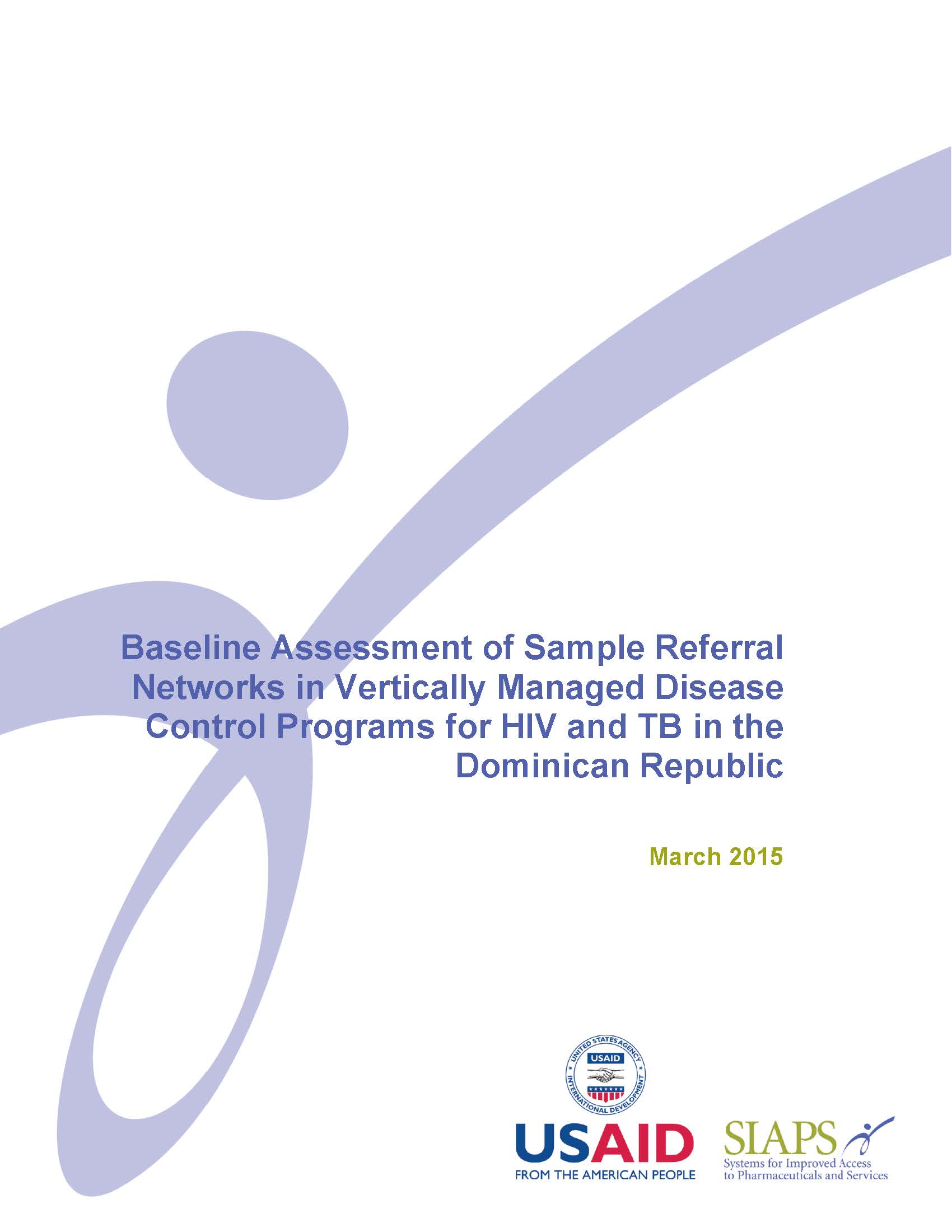
In recent years, the Dominican Republic (DR) introduced new technology and methods for the diagnosis of tuberculosis (TB) and human immunodeficiency virus (HIV) aiming to improve diagnostic services and delivery. Subsequently, national disease control programs, including the National TB Control Program (Programa Nacional contra la Tuberculosis; PNCT), the General Directorate for the Control of Sexually Transmitted Diseases and AIDS (Dirección General de Control de las Infecciones de Transmisión Sexual y SIDA; DIGECITSS), and the National Counsel for HIV and AIDS (Consejo Nacional para el VIH y el SIDA; CONAVIHSIDA) have facilitated universal access for sputum smears, cultures, drug susceptibility tests, cluster of differentiation 4 (CD4) counts, viral load tests, and Proviral DNA testing for early infant diagnosis (EID) for HIV.
In an effort to strengthen its service delivery, the DR Ministry of Health (MoH) requested technical assistance for a baseline assessment5 from the Systems for Improved Access to Pharmaceuticals and Services (SIAPS) program, a project funded by the US Agency for International Development for strengthening health systems. This assessment is the principal source of information adapted for this technical report and had the following main objectives: collect critical data necessary for mapping the current transportation system for HIV and TB samples; to identify the bottlenecks hampering its operation; and to support the creation of a unified samples referral network based on the evidence found.


